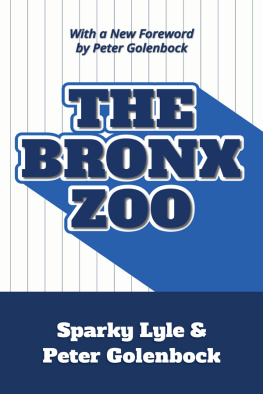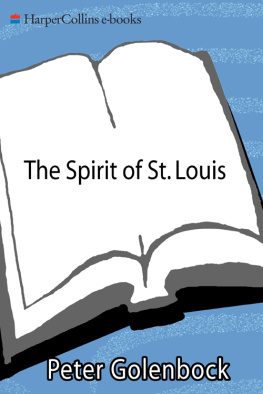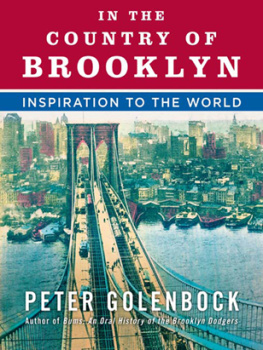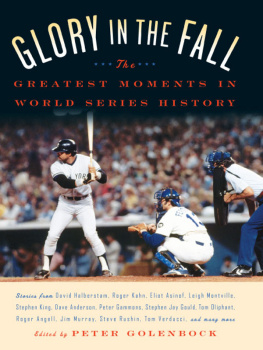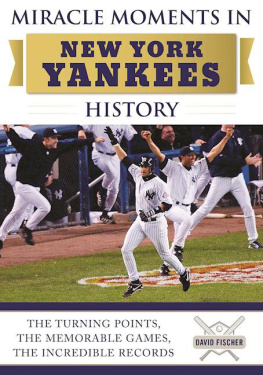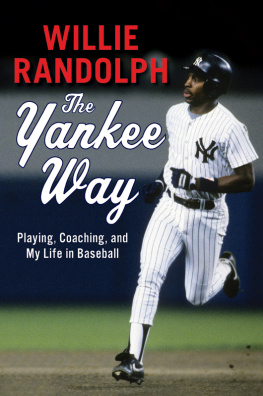
THE BRONX ZOO
Sparky Lyle
and
Peter Golenbock

Summer Game Books
P.G.
1979 by Albert Sparky Lyle and Peter Golenbock
First Summer Game Books Edition 2019
New Foreword 2020 by Peter Golenbock
Published by Summer Game Books at Smashword
All rights reserved.
No part of this publication may be reproduced, stored in a retrieval system, or transmitted in any form by any process electronic, mechanical, photocopying, recording, or otherwise without prior written permission from the copyright owner and the publisher. The scanning, uploading, and distribution of this book via the internet or any other means without the permission of the publisher is illegal.
ISBN: 978-1-938545-32-0 (ebook)
For information about permissions, bulk purchases, or additional distribution, write to Summer Game Books
P. O. Box 818
South Orange, NJ 07079
or contact the publisher at www.summergamebooks.com
TO MY WIFE, MARY, WHOM I CAN ALWAYS COUNT ON IN THE CLUTCH, AND TO MY TWO BOYS, DANE AND SHANE, WHO MEAN SO MUCH TO ME.
A.L.
TO GRANDMA RAY AND AUNT SHIRLEY, MAY YOU BE WITH US FOREVER, AND TO RHONDA, MY FRIEND AND LOVER, LOVER AND FRIEND.
Contents
New Foreword to The Bronx Zoo
By Peter Golenbock
Life is full of surprises. You never know whats around the corner. I was happily ensconced as the assistant night news editor of The Bergen Record in the fall of 1978 when I received a call from a man named Doug Newton. He was Billy Martins business agent, and he asked if I was interested in writing Billys autobiography.
As a lifetime New York Yankees fan I had followed Billy through his fabled if troubled career. In my book Dynasty, which was a history of the team during the sixteen years in which it won fourteen pennants and nine World Series, I had the pleasure of interviewing Billy while he was the manager of the Texas Rangers. We sat in the stands the morning before a game and I interviewed him about his years with the Yankees.
In Dynasty I wrote the sentence, it turns out, that changed my life.
I said that Billy was as important to the success of the Yankees as Mickey Mantle and Whitey Ford. Billy wisely decided that if he was going to write his autobiography, he should write it with the guy who said he was as important to the Yankees as Mickey Mantle and Whitey Ford.
Immediately I said yes, of course Ill help Billy write his autobiography. But then, as things went with Billy, he decided he wasnt quite ready to sit down and get started, and so Doug Newton, not one to let a stone go unturned, asked me if I was interested in writing a book with his other client, Yankees star relief pitcher Sparky Lyle.
Even though Sparky had won the Cy Young Award and had helped lead the Yankees to a pennant and World Series win in 1977, my initial reaction was one of skepticism. Sparky was not a marquee name like Jackson or Piniella, and I wondered whether his life was interesting enough to warrant a book.
When I told Doug that, he said to me, Peter, just come down to spring training in Fort Lauderdale, talk to Sparky, and then decide.
It was cold in New Jersey where I lived, so I took him up on his offer.
As I stood in the Yankees locker room and talked with Sparky about writing a book with him, I looked around the room and saw Thurman Munson, Reggie Jackson, Graig Nettles, Lou Piniella, Catfish Hunter, and, of course, Billy Martin, the manager. Billy had been fired in Texas and then quickly scooped up by Yankees owner George Steinbrenner.
Aware of the fireworks shooting out from the relationships among Billy, Reggie, and George, I thought to myself, If Sparky kept a diary of the season, this could be a very interesting book.
Another big plus for working with Sparky is that I he lived in Demarest, NJ, two towns over from me. It wouldnt take me fifteen minutes to go see him.
Sparky and I shook hands. We agreed to be fifty-fifty partners. Sparky told me his plan was to take a tape recorder with him wherever he went so he could record his innermost thoughts about what was happening to him and the Yankees.
Once spring training ended, Sparky returned home to New Jersey, and we met.
I dont think we can do this book, he said. I couldnt think of anything to talk about.
I had a feeling that was going to happen. Putting ones thoughts on paper isnt as easy as it may sound.
Tell you what, I said. Why dont I ask you a bunch of questions, and you just talk?
I told him that unlike a newspaper reporter, my job was to make sure Sparky Lyle sounded as intelligent and interesting as I could make him. I also told him that nothing he said would ever leave the room.
No one else will know what we are talking about until the book is finished, and then you approve it, I said.
And so we began with Sparky telling me about the day he found out that he had won the Cy Young Award.
We handed in a forty-page proposal. When I showed it to my agent, a woman with no knowledge or interest in baseball, she said to me, Who wants to read about a pinch pitcher?
I was in a state of panic, and so I called Frank Coffee, who had been the editor of Dynasty, and asked him for the name of an agent who knew something about baseball.
He had me call Jay Acton, who represented James Baldwin, among others, and when I showed Jay my proposal, he was excited. He sent it around. The major problem with a diary is that it is impossible to know how it will end, and most of the publishers expressed their concern that if the Yankees ended up in third place which was where they were at the time I handed Jay the proposal the book would have a disappointing and not very salable ending.
Crown publishers and its editor Larry Freundlich didnt have that concern. They offered us a $40,000 advance to write the book which I had entitled As The Clubhouse Turns.
Its now 2020, an age when most major league baseball players make a million dollars a year or more. Some make ten, twenty, or even thirty million a year. But in 1978 Sparky Lyle was making $140,000, so his $20,000 share of the advance was a nice chunk of change for him.
What neither of us knew at the time was that during the winter George Steinbrenner had signed relief pitcher Goose Gossage for $2 million. Looking back, if I had waited much longer, I doubt very much if I could have gotten any baseball player to agree to write a book for $20,000. The players began making that much money in a weekend signing autographs.
During that spring, summer, and fall I would drive over to Sparkys house with my long list of questions, and wed talk Yankee baseball. As the season went on, it was clear Sparky was frustrated because not only was Gossage making $2 million, he was taking over the closer GooseGossage slowly was taking his closers role. As teammate Graig Nettles succinctly put it, Sparky was going from Cy Young to Sayonara.
Sometimes in life you get lucky. Crown certainly did, as did I. Controversy sells books, and there was plenty of controversy. During that 1978 season Sparky was able to describe the growing rift between Billy Martin and his star slugger Reggie Jackson and the blatant animosity between Billy and his owner George Steinbrenner, who was convinced he knew more about managing a team than Billy did.
When Billy quit in frustration, Sparky was there, and he was witness to Bob Lemons ascendency as manager and the skillful way Lemon took the Yankees from fourteen games back to a tie at the end of the season with the Boston Red Sox.
Next page
